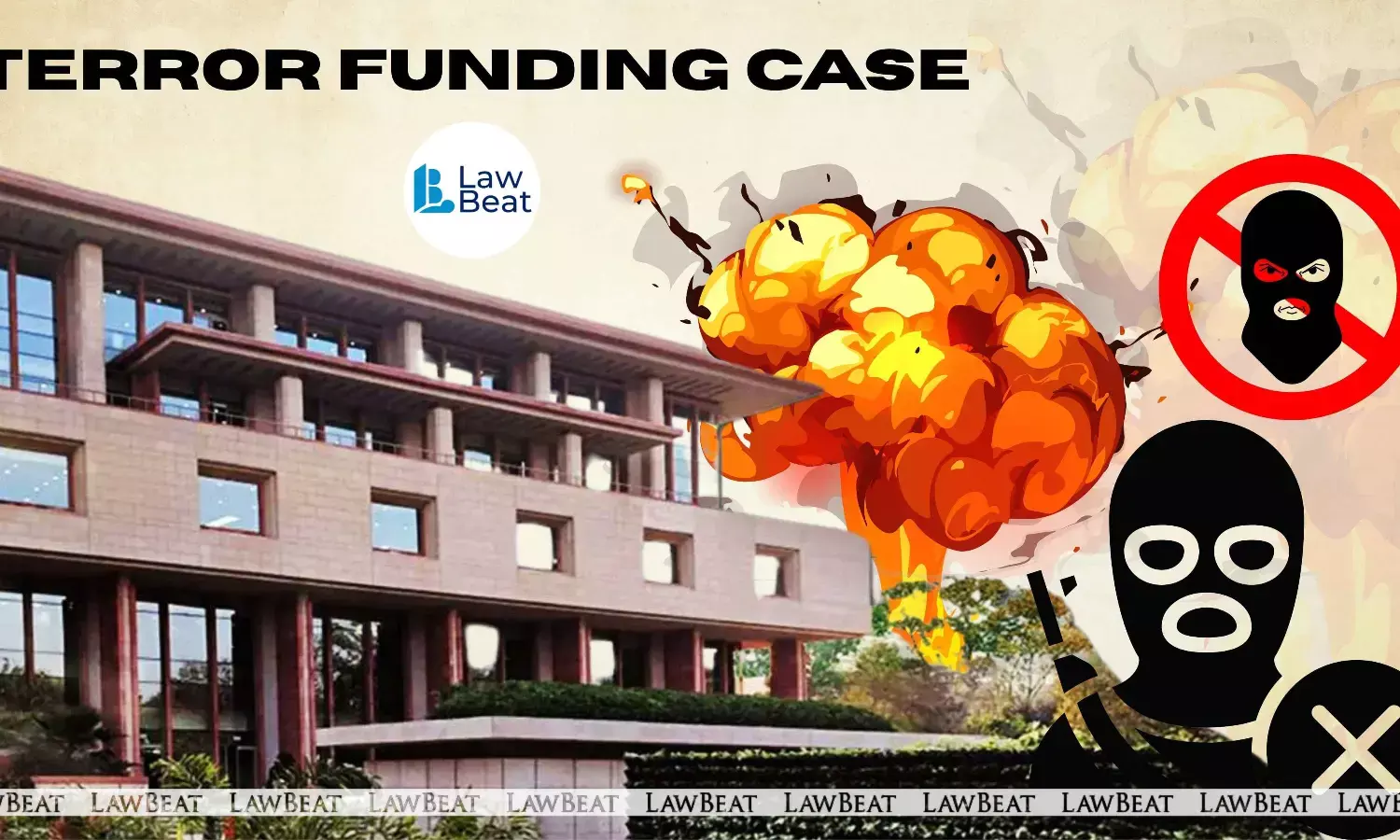Appeal Not Maintainable Against Interlocutory Or Intermediary Order: NIA Before Delhi HC In Terror Funding Case

The Delhi High Court, on Wednesday, heard petitions filed by several accused individuals in the Kashmir terror funding case. The matter came up before the bench of Justice Subramonium Prasad and Justice Harish Vaidyanathan Shankar.
Senior Advocate Sidharth Luthra, appearing for NIA, stated, “only interlocutory orders that grant or reject bail are made appealable and not other interlocutory orders are appealable…In order to facilitate the speedy trial, it has become necessary to amend certain provisions of the Act. The whole purpose is that the trials under this act must be given precedence, therefore, only final orders can be challenged… no interlocutory or intermediary order can be challenged”.
The primary issue under consideration was whether an order framing charges under the National Investigation Agency Act, 2008, constituted an interlocutory order, and if so, whether such an order was appealable.
Section 21 of the National Investigation Agency Act (NIA Act):
"Appeals- (1) Notwithstanding anything contained in the Code, an appeal shall lie from any judgment, sentence or order, not being an interlocutory order, of a Special Court to the High Court both on facts and on law.
(2) Every appeal under sub-section (1) shall be heard by a bench of two Judges of the High Court and shall, as far as possible, be disposed of within a period of three months from the date of admission of the appeal.
(3) Except as aforesaid, no appeal or revision shall lie to any court from any judgment, sentence or order including an interlocutory order of a Special Court.
(4) Notwithstanding anything contained in sub-section (3) of section 378 of the Code, an appeal shall lie to the High Court against an order of the Special Court granting or refusing bail.
(5) Every appeal under this section shall be preferred within a period of thirty days from the date of the judgment, sentence or order appealed from:
Provided that the High Court may entertain an appeal after the expiry of the said period of thirty days if it is satisfied that the appellant had sufficient cause for not preferring the appeal within the period of thirty days:
Provided further that no appeal shall be entertained after the expiry of period of ninety days".
Counsel for the accused argued that the order framing charges should not be classified as interlocutory. They relied on multiple precedents, including judgments from the Supreme Court, to submit that only bail-related decisions were treated as interlocutory, and therefore appealable, while orders framing charges fell outside this category.
Senior Advocate Sidharth Luthra contended that under the framework of the NIA Act, only certain interlocutory orders—namely, those granting or refusing bail—were appealable. He emphasized the legislative intent behind the 2019 amendments to the NIA Act, which sought to ensure that trials under the Act proceeded on a day-to-day basis without unnecessary delays. Accordingly, he argued that only final orders ought to be subjected to appellate scrutiny, and interlocutory or intermediary orders, such as those framing charges, could not be challenged.
The court raised concerns regarding the absence of any remedy for the accused once the trial commenced, noting that such a situation might be inconsistent with the protections afforded under Section 21 of the Act. In response, Senior Advocate Luthra submitted that the accused were not left entirely without recourse, as constitutional remedies under Article 226 remained available. He cited a judgment of the Meghalaya High Court (Dimchuingam Ruangmei v NIA; 2022 SCC OnLine Megh 522), which held that mere framing of charges could not be appealed.
As the hearing progressed, the court examined relevant provisions of the Code of Criminal Procedure (CrPC) and discussed differing judicial interpretations on the maintainability of appeals against orders framing charges. Counsel for both sides cited multiple precedents, including the V. C. Shukla v State case (Supreme Court,1980 AIR 962), to support their respective arguments.
Due to a paucity of time, the court relisted the matter for May 15, 2025.
Updates in Connected Matters:
The sons of the chief of Hizb-ul-Mujahideen, Syed Ahmad Shakeel and Syed Shahid Yusuf, approached the Delhi High Court seeking directions to restore their phone call facility in prison. The arrest was made in connection with a terror funding case registered in 2011, concerning the transfer of funds from Pakistan to Jammu and Kashmir to support secessionist and terrorist activities. However, the bench of Chief Justice Devendra Kumar Upadhyay and Justice Tushar Rao Gedela listed the matter for May 22, 2025.
The Delhi High Court, on April 10, 2025, rejected the bail application of Nayeem Ahmad Khan, who was another accused in a terror funding case linked to separatist activities in Jammu and Kashmir. The bench of Justice Navin Chawla and Justice Shalinder Kaur noted that it was a serious and extensive conspiracy endangering national unity and integrity. Hence, granting bail to Khan would be detrimental to public safety and national security, and such concerns could not be ignored by the court.
Case Title: Shahid Yousuf v NIA (CRL.A. - 199/2021)
